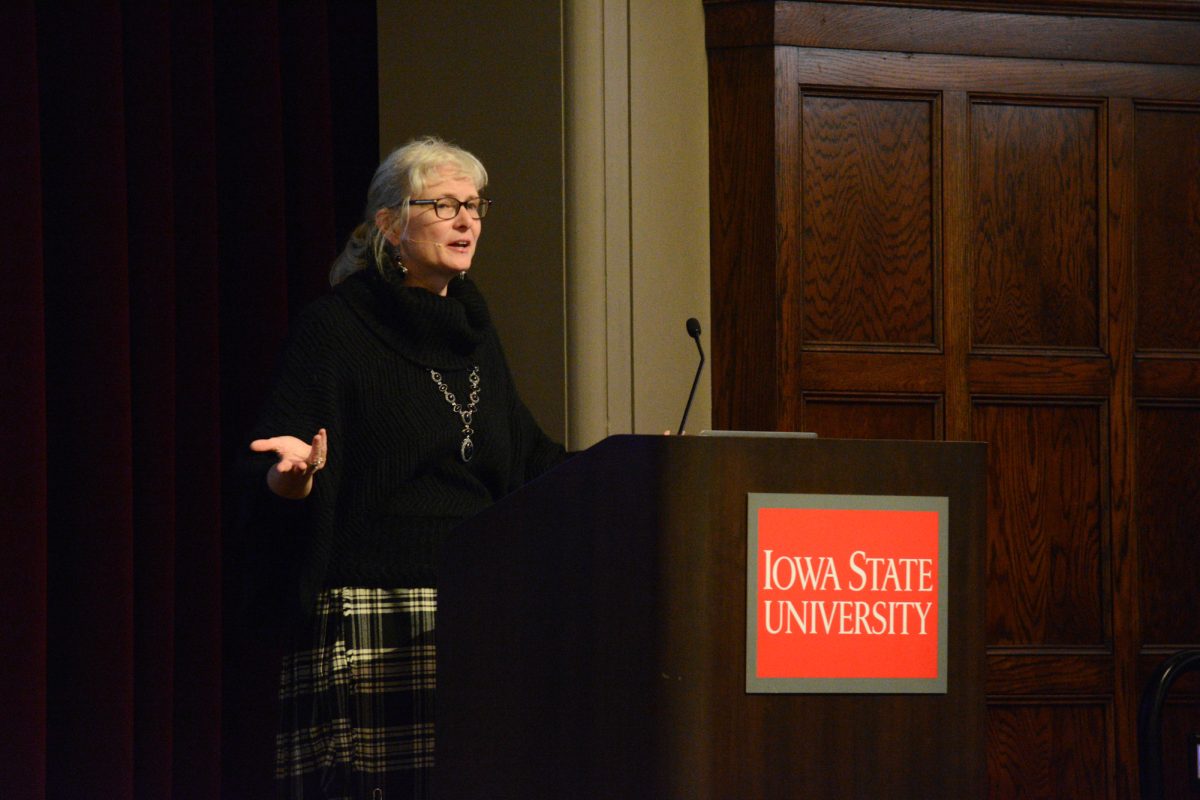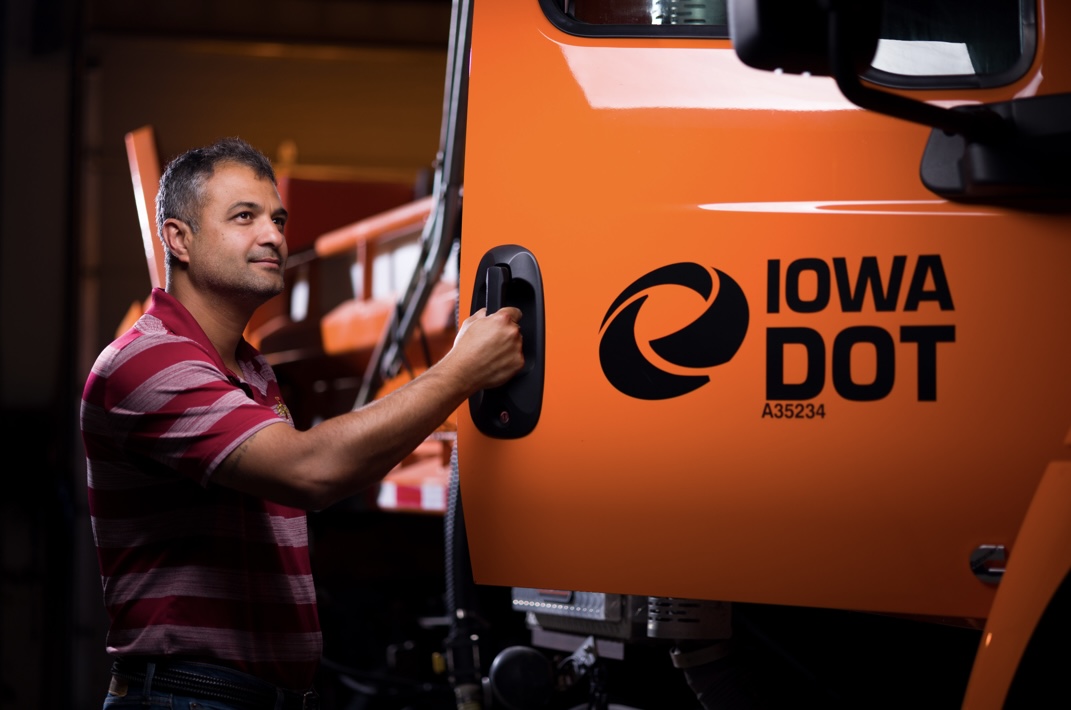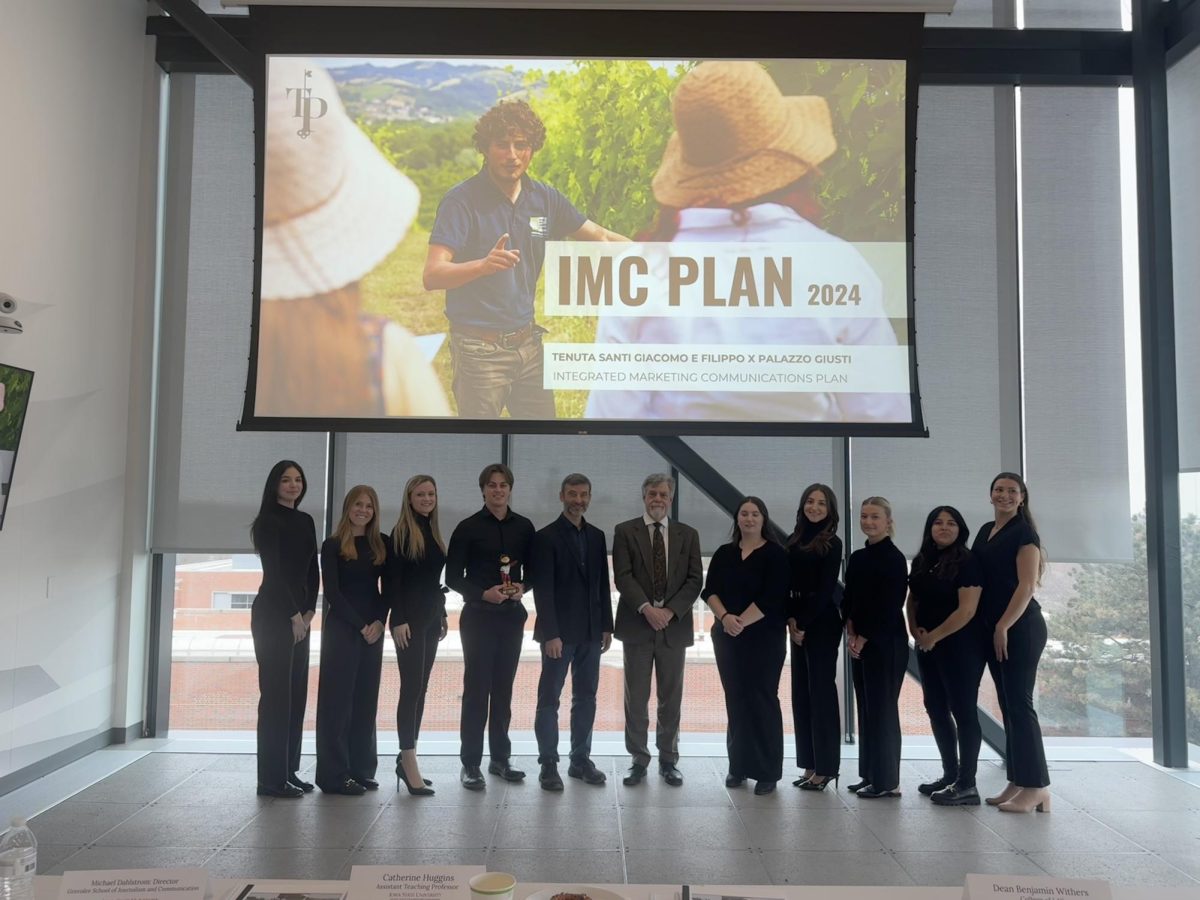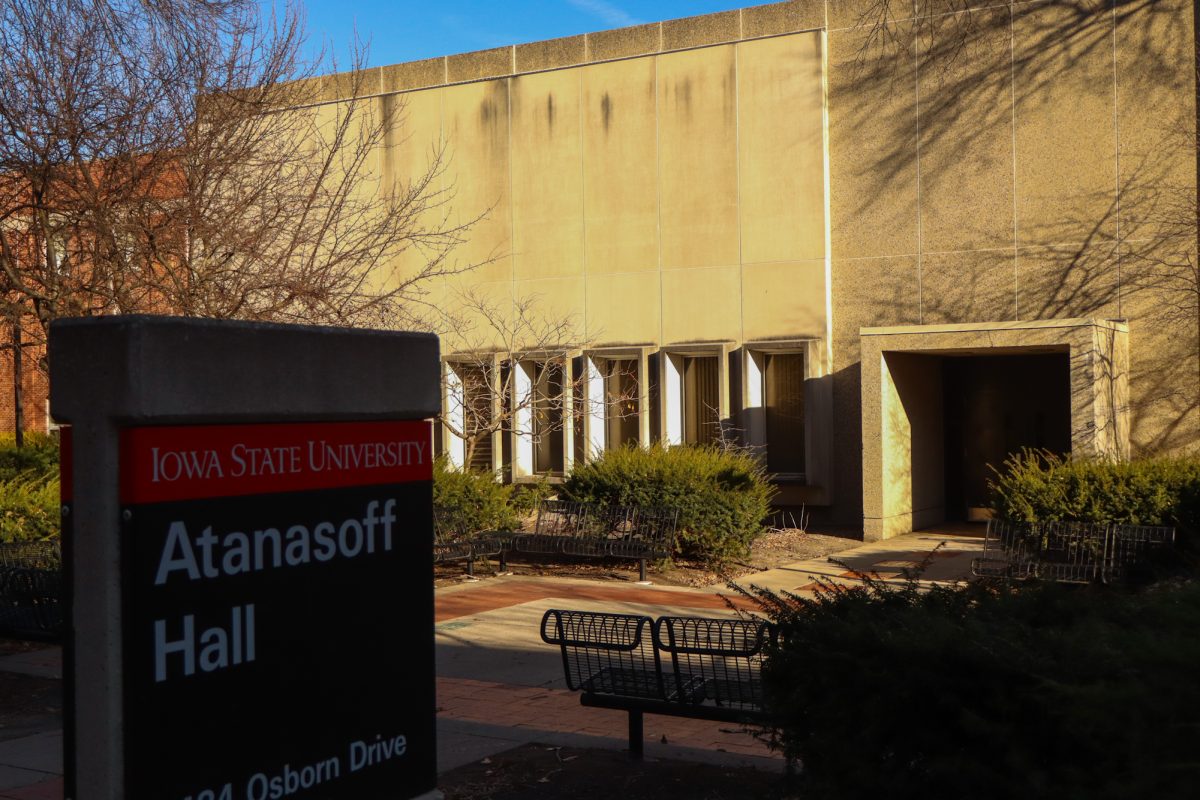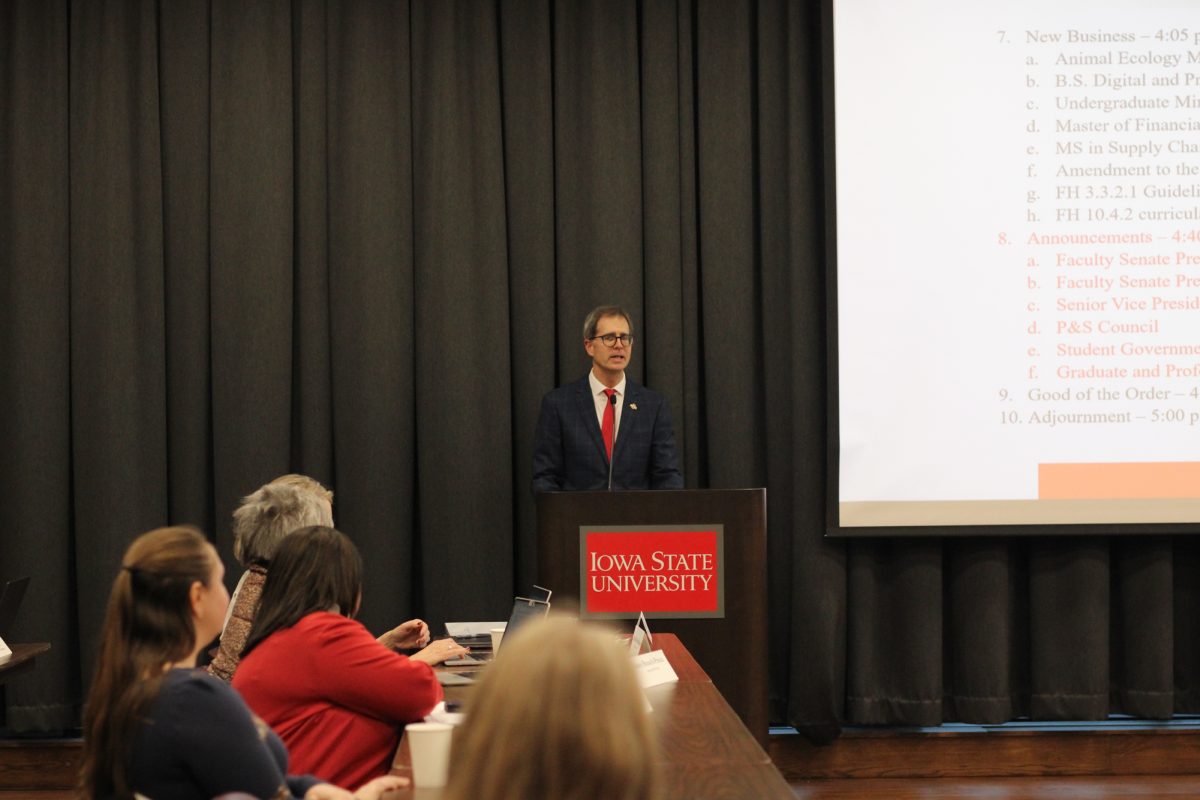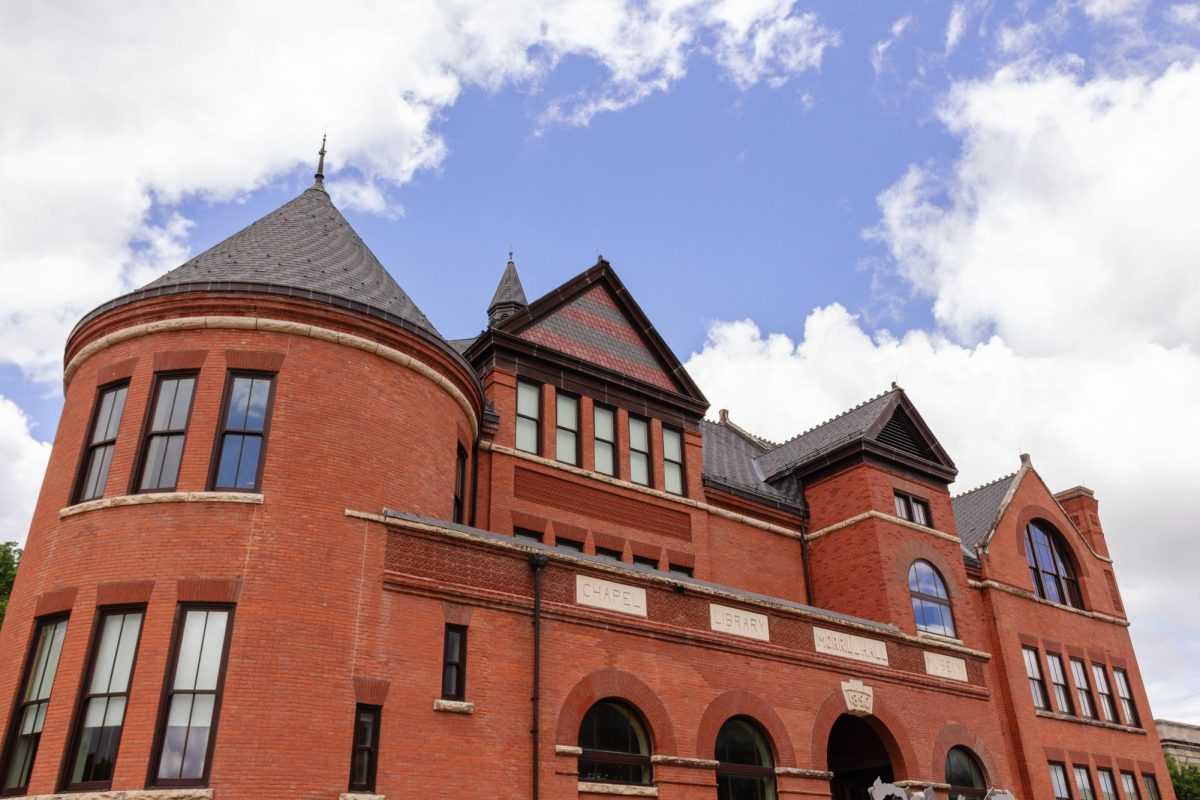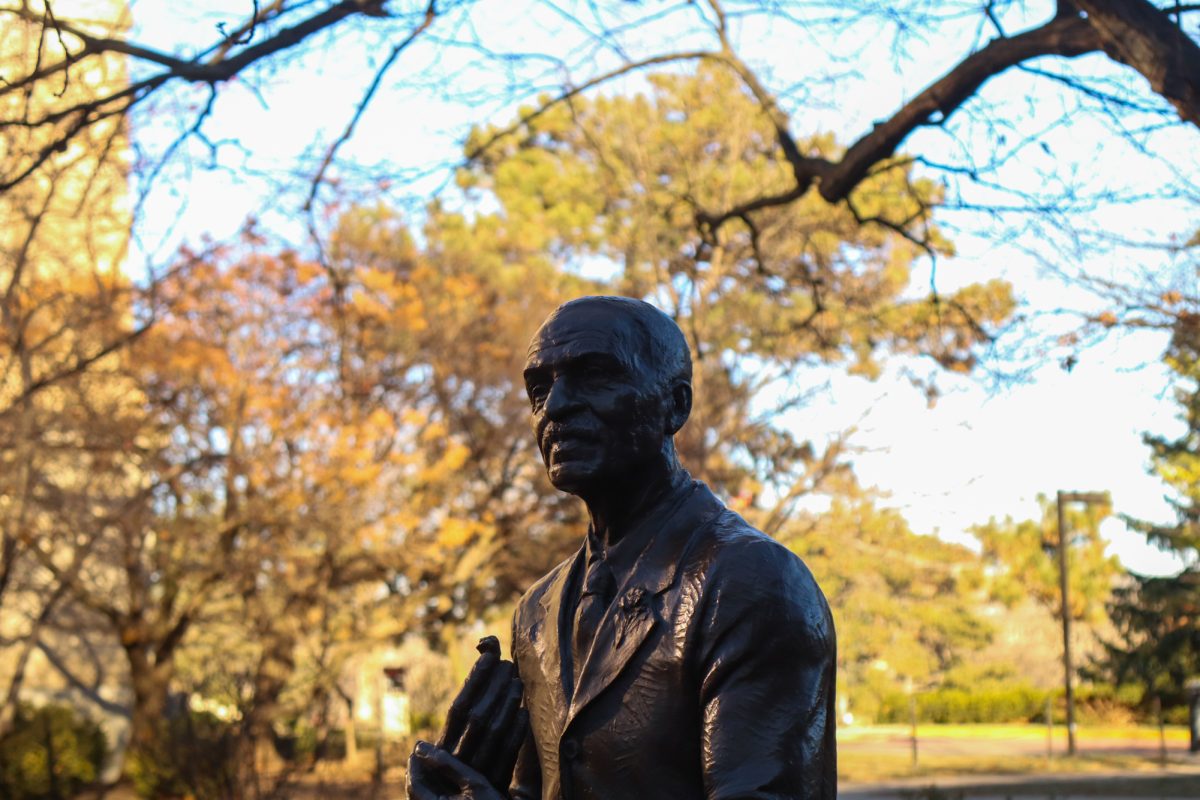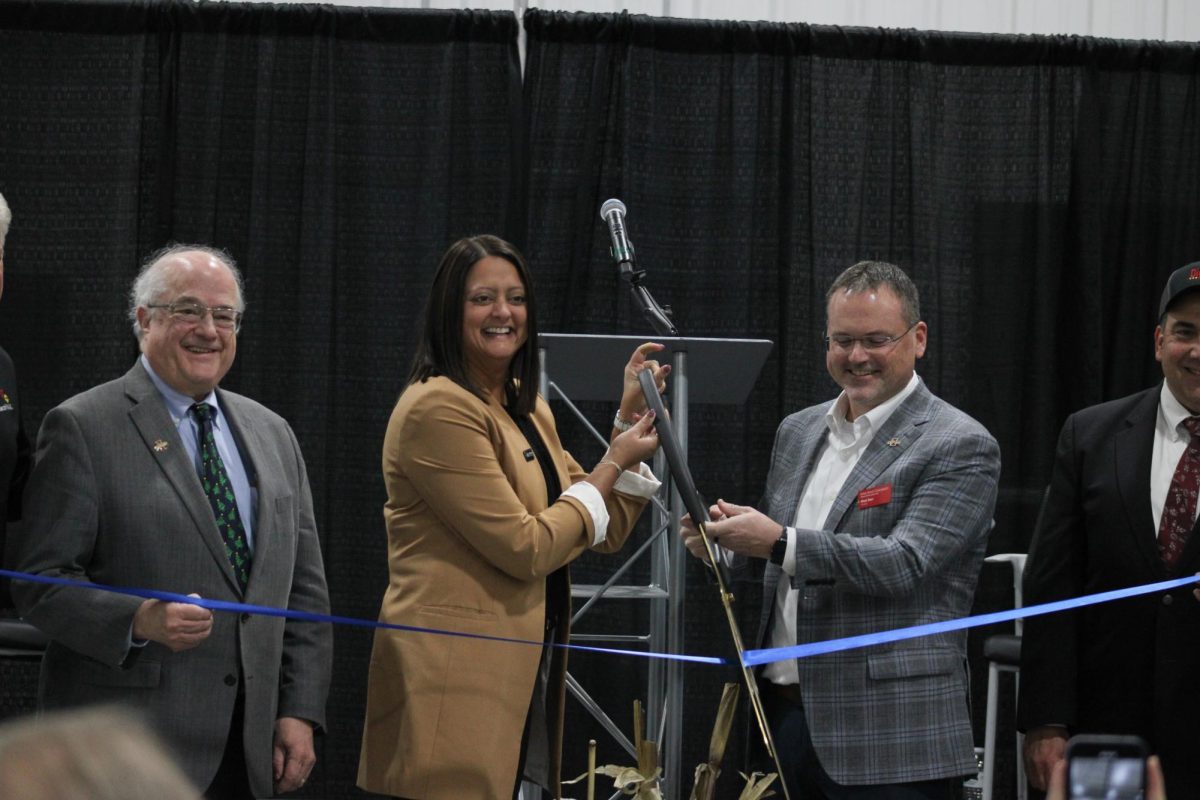Linda Shenk, an English professor at Iowa State, explained the connection between her Shakespearean background and climate change action during a lecture Monday at the Memorial Union.
Shenk is a professor of English and was selected by Dean Benjamin Withers to deliver the fall 2024 LAS Dean’s Distinguished Lecture, according to the lecture preview.
The lecture consisted of Shenk’s methods applied from her training in Shakespeare and performance studies to foster collaborative storytelling among researchers and community members who support climate action and resilience.
In particular, Shenk works with women farmland owners in Iowa. Shenk’s lecture bridges the humanities of sciences to explore how practices from Shakespeare and his theater support climate research that phosphors collaborative community action.
“Shenk’s lecture bridges the humanities and the sciences to explore how practices from Shakespeare and his theater support climate research that fosters collaborative, community action. These practices allow communities and researchers to tell stories with each other rather than simply to each other, thereby weaving together their diverse understandings and experiences into coherent, productive action,” according to the lecture preview. “Shenk has conducted this research for nearly ten years, including currently as a Lead Principal Investigator of a $6M NOAA Climate Adaptations Project for the Central Midwest.”
Shenk’s lecture began with an understanding of Shakespeare and storytelling.
“What I’m interested in, working with Shakespeare and bringing my background, is how we can do storytelling with each other,” Shenk said. “How can research and community members tell stories together?”
Shenk proposed the idea of collaborative storytelling. Through this she used Shakespeare’s famous play “Romeo and Juliet” as an example.
“Shakespeare, as all good storytellers, did something that we don’t often always think about: he placed gaps in his plays,” Shenk said. “He left things not specified, not clear, undecided, and into those spaces we as readers, listeners fill in those gaps with our own imagination with our own experiences.”
She explained that the feud between the families was never clearly expressed throughout the play, so it was left for the readers, listeners and production makers to fill the gaps with their own imagination.
Shenk connected her storytelling background with her work with women and farmland owners.
“We have at first, the women themselves tell their stories of their land,” Shenk said. “What do they remember? What kinds of things are important to them? And then we begin to hear their values and what kind of stories and things that they are interested in.”
Shenk expressed that she listens to what the women are saying and what they value. Then, the researchers listen and bring in the stories and data that are relevant to and matter to them.
Shenk showed examples of women cultivating new ideas through the process of storytelling. These include ideas in new cover crops, beekeeping and stewardship.
“I never would have thought of some of these things that these women have done, and through listening to their stories and bringing the stories of research in, we suddenly create something together and none of us would have thought,” Shenk said.
Shenk also expressed the idea of climate change and storytelling.
“An often notion of human causes of climate change is important because people want others to feel a sense of responsibility to take action,” Shenk said. “But maybe action is really the story. I want to emphasize that telling a good story is important. That letting others in and do storytelling alongside each other is even more powerful than as possible. And that’s what we do in literature classrooms: looking at these places of gaps and allowing for multiple stories to be possible.”
The lecture recording will be uploaded in the next 36 hours and available for those with an Iowa State NetID for two weeks on the available recordings page.


